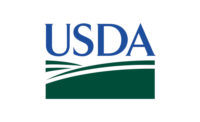USDA outlines new program to address supply chain crisis at NMPF, USDEC supply chain webinar
The program was launched in partnership with the Port of Oakland and will set up a new “pop-up” site at the port dedicated to easing the loading of empty containers with agricultural exports.

On Jan. 31, Agriculture Secretary Tom Vilsack announced a new program to help address the export side of the supply chain crisis. The initiative was addressed at a Jan. 31 webinar featuring agriculture industry and policy leaders hosted by the National Milk Producers Federation (NMPF) and the U.S. Dairy Export Council (USDEC).
The USDA program discussed during the webinar was launched in partnership with the Port of Oakland and will set up a new “pop-up” site at the port dedicated to easing the loading of empty containers with agricultural exports, USDEC and NMPF said. The new site will also have a dedicated gate with the ability to pre-cool refrigerated shipping containers to reduce bottlenecks at the main entrance to the port.
The new arrangement should be available beginning in March and will include support of $125 per container for movement logistics costs. See the USDA press release here.
During the webinar, Vilsack emphasized that this type of program is important to dairy exporters such as Leprino Foods. Their ability to deliver an “ample supply” of safe, quality foods on a reliable basis is critical to their export customers. Disruptions can risk market share, and that market share is hard to get back.
“Congestion in and around U.S. ports is one of a series of export supply chain challenges undercutting U.S. dairy exporters’ ability to reliably meet the needs of overseas customers for high-quality U.S. dairy products,” said Krysta Harden, president and CEO of Arlington, Va.-based USDEC. “By creating a process specific to handling U.S. agricultural exports, we expect USDA’s new partnership with the Port of Oakland will help alleviate some of those challenges. We look forward to working with USDA and our members on this new initiative while continuing to pursue additional legislative and administrative solutions to the dairy export supply chain crisis.”
Agri-Pulse, which served as the media partner for the event, reported over 1,200 registrations for the webinar, one of the highest pre-registration figures in the publication’s webinar history, the organizations said. Speakers included Vilsack; John Porcari, the Biden administration’s supply chain ports envoy; Rep. John Garamendi (D-Calif.); Rep. Dusty Johnson (R-S.D.); Mike Durkin, president and CEO of Leprino Foods; Andrew Hwang, manager of business development and international marketing for the Port of Oakland; and Jon Eisen, director of the Intermodal Motor Carriers Conference for the American Trucking Association. Moderators included Harden and Jaime Castaneda of NMPF and USDEC.
“The delays and disruptions in export shipping have cost the U.S. dairy industry well over $1.3 billion through just the first three quarters of 2021 — to say nothing of the rest of America’s agricultural sector. Solving this problem simply cannot wait any longer, and today’s announcement of the close collaboration between our associations, the Port of Oakland and USDA is one key step in the right direction,” said Jim Mulhern, president and CEO of NMPF. “Today’s webinar brought together leaders in Congress and the administration whose efforts have been central to the multi-faceted work of addressing agricultural export supply chain challenges. We thank them for their continuing work and their participation today and look forward to pursuing additional steps to deliver relief for dairy exporters.”
The USDA announcement came just days after Vilsack hosted a virtual roundtable with leading agricultural industry CEOs (on Jan. 27), in which NMPF and USDEC members, among others, raised their concerns tied to exports. USDEC and NMPF, in collaboration with other agriculture interests across the United States, said they have leveraged a multi-prong approach with Congress and the administration since early 2021 to address the supply chain disruptions plaguing the dairy industry, including unprecedented fees, container availability and lack of transparency.
For example, in addition to last week’s meeting at USDA, NMPF and USDEC supported a bipartisan letter to the White House by U.S. Reps. Jim Costa (D-Calif.) and Johnson and signed by 71 members of Congress urging the administration to use its emergency powers to immediately address problems caused by the crisis and mitigate risks to U.S. agricultural exporters. The letter made three specific requests:
- Utilize available emergency authorities to incentivize carriers to load full outbound containers instead of empties.
- Utilize emergency actions that allow gross vehicle weight limits to exceed 80,000 pounds, even if only on a temporary basis.
- Utilize existing tools and authorities to provide immediate access to critical shipping and logistics equipment.
Harden told Dairy Foods that USDEC has been talking and meeting with officials from the White House and organizations ranging from USDA to the Department of Transportation about port-related and other supply chain issues for some time now. And the problems really began to build over the summer.
“We just continued to keep the pressure on, to have tough conversations and give very specific information from our members,” she said. “Mike Durkin has been there a number of times on Capitol Hill talking to other government officials about what’s going on, but he’s not the only one. We’ve had a number of our processors and manufacturers of dairy products get really specific — kind of, ‘Here are my numbers. … I think that makes a difference when you have a CEO waking up at night wondering how he’s going to keep this longtime, hard-earned customer/partner happy so they don’t have to go somewhere else.”
Going forward, USDEC will help keep the awareness and attention on exports, Harden added. She expects to see similar efforts and more creativity to address export issues at U.S. additional ports.
“A lot of the headlines are about imports because our consuming public, that’s what they’re concerned about — products on the shelf, getting the types of products they want, certain toys around the holidays,” she said. “But we really don’t think about the U.S. being such a big exporter. And I think we need to keep attention on that — this is a two-way problem and a two-way opportunity.”
What’s more, there’s a lot of demand for dairy across the globe, Harden noted.
“It just gets me thinking about what could happen, where could we be, dairy companies, if we didn’t have these kinds of headwinds? … We’re not going to let up. We’re going to stay working very hard to make sure the concerns of our members are heard by decision-makers,” she said.
Looking for a reprint of this article?
From high-res PDFs to custom plaques, order your copy today!




